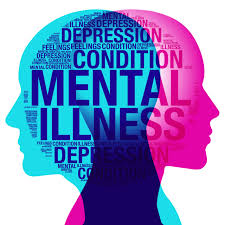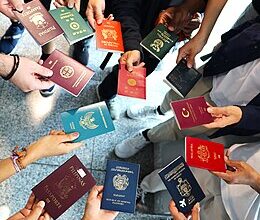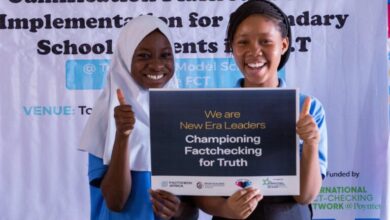
BY: Mustapha Lawal
TikTok’s mental health misinformation is spreading fast, and Nigeria’s vulnerable youth are paying the price.
TikTok’s most popular mental health videos are often misleading or outright harmful. A recent Guardian investigation found that more than half contain false or exaggerated advice, posing risks not just in the UK, but across Africa, where mental health services remain scarce and stigma runs deep.
TikTok is one of the world’s most popular social media platforms, especially among young people. But a growing body of evidence, including a recent investigation by The Guardian, shows that TikTok is also becoming a hub for mental health misinformation. The study found that over half of the top 100 most-viewed TikTok videos under the hashtag #mentalhealthtips were rife with false, oversimplified, or potentially harmful advice. Videos misused clinical language, promoted miracle cures, encouraged self-diagnosis, and exaggerated common emotional experiences as signs of severe mental illness.
TikTok’s Dual Identity: Safe Space or Source of Harm?
TikTok has rapidly become a destination for young people seeking mental health advice. Yet its short-form content format prioritizes virality over accuracy, often leading to a distortion of complex psychological realities. Experts have warned that TikTok’s algorithm can amplify such misleading content under the guise of relatable self-help.
This trend is not exclusive to the West. In Nigeria and across Africa, TikTok is widely used by young people as a source of entertainment and information. With mental health still carrying significant stigma in many African societies and professional support often inaccessible or unaffordable, people increasingly turn to online platforms for help. This makes African audiences particularly vulnerable to the platform’s unverified, influencer-driven narratives.
Among the misleading claims debunked by clinical experts were quick-fix methods to “heal trauma within an hour”, suggestions to treat anxiety by eating oranges in the shower, and recommendations of supplements like saffron and magnesium glycinate without scientific backing. Such advice can not only delay appropriate care but can also cause feelings of failure or confusion when these so-called solutions do not work.
While some TikTok creators offer valuable peer support or share personal journeys that reduce stigma, the line between storytelling and pseudo-expertise is often blurred, leaving vulnerable viewers unsure what to trust.
Reducing Trauma to a Trend: How TikTok Oversimplifies Pain
In the investigation, Amber Johnston, a psychologist accredited by the British Psychological Society, reviewed trauma-related videos in the study. She found that while some clips contained partial truths, many dangerously oversimplified conditions like PTSD. “Videos suggest everyone has the same symptoms or recovery path, which isn’t the case. PTSD is deeply individual and requires trained clinical support,” she said.
Johnston further warned that these viral tips risk making viewers feel like failures if quick-fix solutions don’t work. “TikTok spreads the myth of secret universal truths, which can exacerbate mental distress when people don’t see the promised results.”
This trend isn’t new. A 2023 report by the American Psychiatric Association also found a surge in social media-induced self-diagnosis. One popular trend, the so-called “undiagnosis” movement, has encouraged TikTok users to identify mental disorders based on symptom checklists from non-clinical sources, a practice widely criticized by health professionals.
From App to Reality: How TikTok Advice Affects Lives
In extreme cases, reliance on misleading TikTok content has led to delayed diagnoses, self-medication, and abandonment of professional treatment. Platforms like TikTok, built for viral engagement, often incentivize creators to package complex topics into overly simplistic formats for likes, views, and shares.
The risks extend beyond misinformation to more serious consequences. In Nigeria, where mental health services are underfunded and understaffed, self-diagnosis and self-treatment encouraged by TikTok could worsen mental health conditions. Nigeria has fewer than 350 psychiatrists for over 200 million people, according to WHO estimates. In this context, reliance on TikTok influencers for mental health guidance is both a symptom and a catalyst of a larger problem.
Psychiatric experts warned that the casual misuse of diagnostic terms like “bipolar”, “borderline personality disorder”, and “trauma response” trivializes serious mental illnesses. These posts often “pathologise everyday experiences and emotions”, said Dan Poulter, a UK-based NHS psychiatrist, a concern echoed by Nigerian practitioners.
A Lagos-based clinical psychologist told FactCheckAfrica: “Mental health awareness has increased, but so has misinformation. Many young Nigerians come to therapy quoting things they saw on TikTok that are not evidence-based. Some stop therapy prematurely, expecting instant solutions because of what they’ve watched online.”
What Can Be Done: Responsibility Beyond the Platform
TikTok responded to The Guardian’s investigation by claiming it collaborates with the WHO and NHS to promote reliable health content. A spokesperson stated, “We proactively work with health experts… and remove 98% of harmful misinformation before it’s reported to us.” However, critics argue that TikTok’s algorithm still favours emotionally resonant, oversimplified content, the very kind that spreads fastest and is most misleading.
Also, the spokesperson added that “TikTok serves as a platform for millions to express themselves and share their genuine mental health experiences, fostering a supportive community. This study’s methodology has clear limitations, as it contradicts this principle of free expression by suggesting individuals should be restricted from sharing their personal stories.”
African mental health advocates and government bodies must now consider regulatory and educational responses. In Nigeria, the National Orientation Agency (NOA), the Federal Ministry of Health, and media literacy initiatives could play a role in educating the public about distinguishing between credible mental health advice and social media noise.
Conclusion:
The mental health misinformation crisis on TikTok is global in scope but has deeply local consequences. In countries like Nigeria, where care is hard to access, false advice online can delay or derail real recovery. While platforms must act more responsibly, national health agencies, educators, and digital literacy advocates must also step up. Young people deserve better than viral myths in place of science-backed support.
For mental health support in Nigeria:
- Mentally Aware Nigeria Initiative (MANI): https://mentallyaware.org
- She Writes Woman Mental Health Foundation: https://shewriteswoman.org
- Call the Nigerian Suicide Prevention Initiative: 08092106493 or 09080217555



